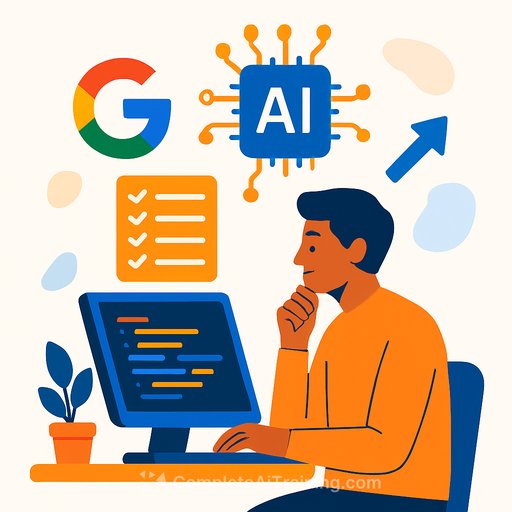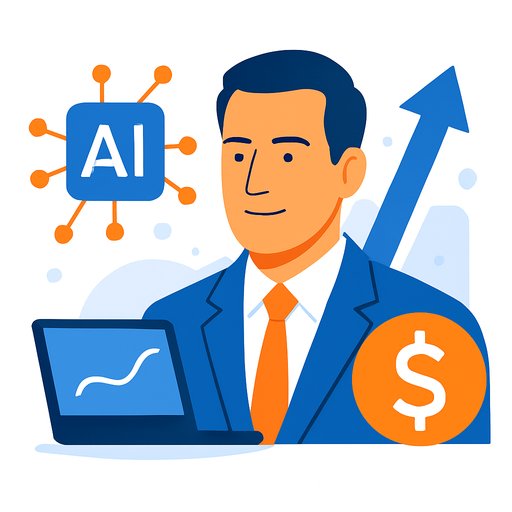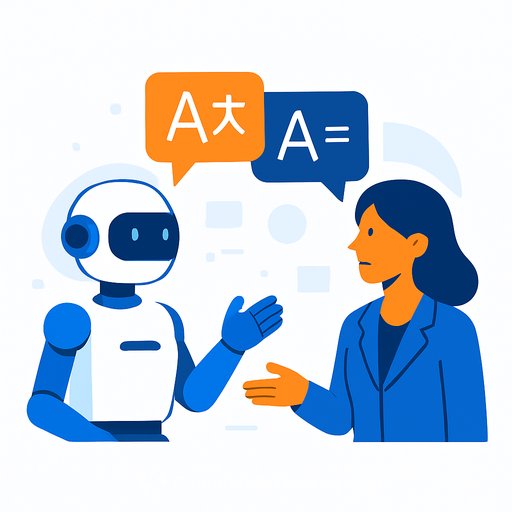Google makes AI mandatory for engineers - what product teams must do now
AI is no longer a nice-to-have at big tech. Google now expects its software engineers to use internal AI models for coding, with over 30% of code attributed to AI. The signal is clear: if your team isn't fluent in AI-driven workflows, you'll trail on speed, quality, and outcomes.
For product development, this shift changes the operating system of how work gets done. Specs, code, reviews, tests, and documentation are moving from manual effort to AI-first loops.
AI proficiency is the new performance signal
Google leadership set guidelines requiring engineers to use AI tools to improve productivity and to seek approval before using third-party AI for non-coding tasks. While AI usage may not be a formal line item in reviews, engineers report that building AI-powered workflows that help teams is noticed and rewarded. Translation: adoption and impact speak louder than slide decks.
From "assistant" to "agent"
Internally, Google runs coding agents via Cider and models trained on proprietary data (including "Gemini for Google"). Code generation at scale is now normal. Non-engineering teams are being encouraged to use tools like NotebookLM, and employees are being trained to build custom Gemini-based solutions. The focus is agentic coding - AI that actively contributes to the software lifecycle, not just autocomplete.
If your product org still treats AI like a side tool, you're conceding velocity to teams that let AI draft, test, review, and ship with tight human oversight.
What this means for product development
Product leaders now own AI adoption as a capability, not a side experiment. Shipping speed, iteration cycles, and cross-functional leverage will depend on how well your team integrates AI into daily workflows - and how well you measure the gains.
5 moves to stay ahead
- Get fluent in internal AI tools. Make AI the default for specs, code stubs, tests, debug notes, and PR summaries. Define where AI drafts first and where humans refine. Fluency beats ad hoc use.
- Build team-level AI workflows. Don't just use AI for your own tasks - ship reusable prompts, scripts, and agents that lift the whole squad. Examples: PRD-to-test-plan generators, bug triage bots, backlog grooming assistants.
- Document AI usage and outcomes. Track where AI saves time, reduces defects, or increases throughput. Keep lightweight logs (prompt, output, edit deltas, time saved). Evidence gets budget and recognition.
- Upskill on a cadence. Models and features change fast. Set a monthly learning rhythm: lunch-and-learns, prompt libraries, internal demos, and short certifications. If you manage PMs or engineers, make AI fluency part of onboarding and leveling. Browse AI courses by job or consider a focused track like AI certification for coding.
- Create space for bold experiments. Reward small, fast trials: agent-driven test generation, spec-to-ticket pipelines, or auto-generated release notes. Ship a weekly experiment; keep what works; discard what doesn't.
This week's quick actions
- Audit your workflow. Mark steps where AI can draft first: PRDs, user stories, code comments, tests, API docs, changelogs.
- Set tool policy. Define approved internal tools, review rules for any third-party AI, and redlines for sensitive data.
- Publish a prompt and template library. Standardize prompts for common tasks and store them in your team's repo or wiki.
- Add AI to your Definition of Done. Require AI-assisted test scaffolds, doc updates, and PR summaries.
- Measure it. Track cycle time, PR review latency, defect escape rate, and time-to-first-draft for specs - pre and post AI.
- Run a live demo. Show one AI workflow that saved real time this sprint. Social proof drives adoption.
Tools mentioned
- NotebookLM: Useful for research, synthesis, and knowledge base creation. Open NotebookLM
- Agentic coding (internal focus at Google): Agents that plan, write, and iterate on code under human supervision.
The broader lesson
AI is becoming a baseline skill. Teams that treat it as a teammate - not a novelty - will ship faster, reduce risk, and grow careers. Set the expectation, measure the wins, and keep improving the workflows. The gap between AI-fluent product orgs and everyone else will only get wider.
Your membership also unlocks:




